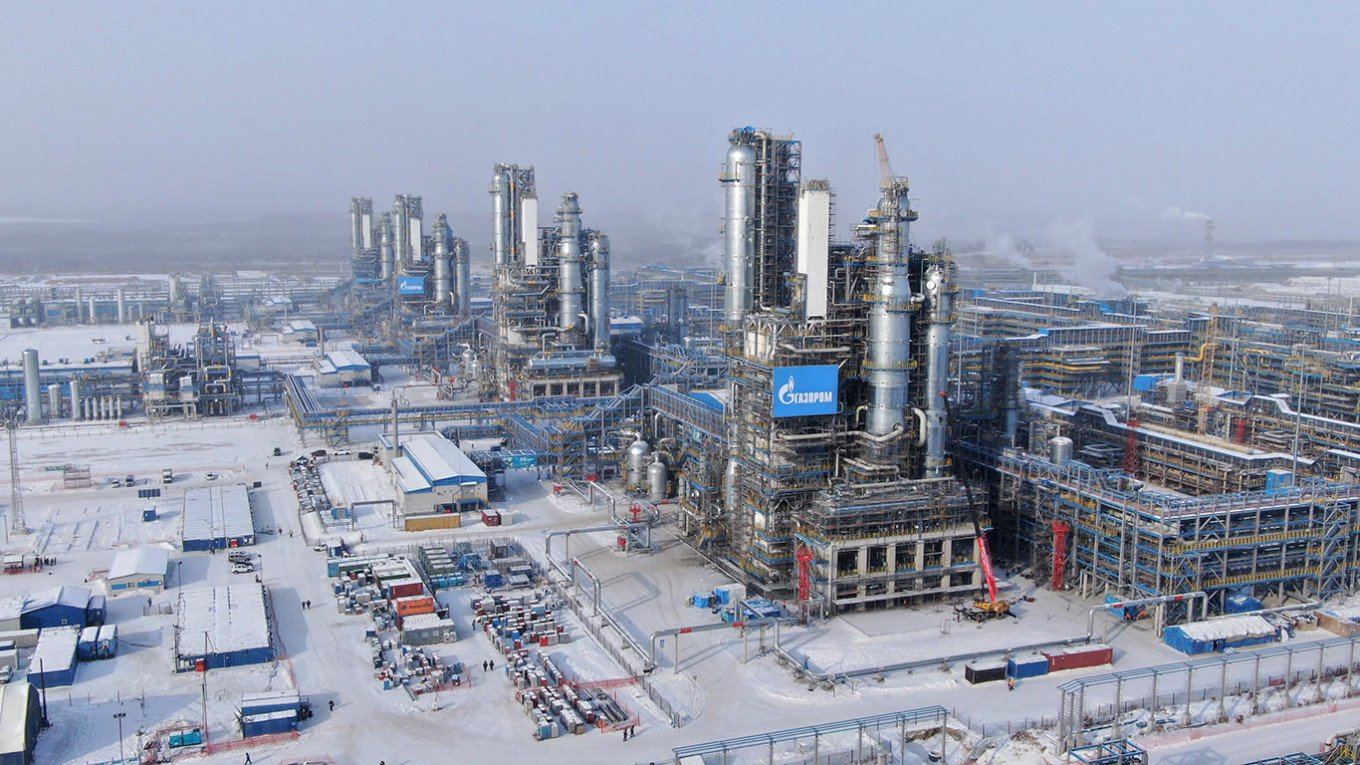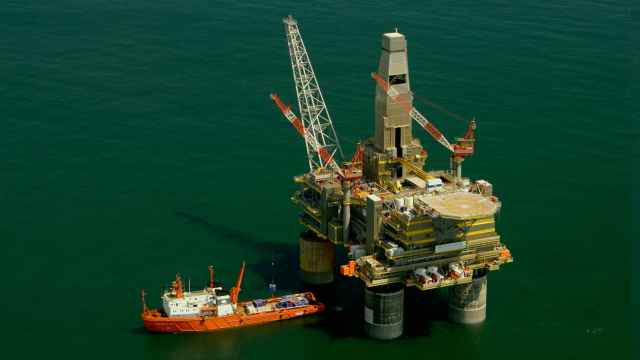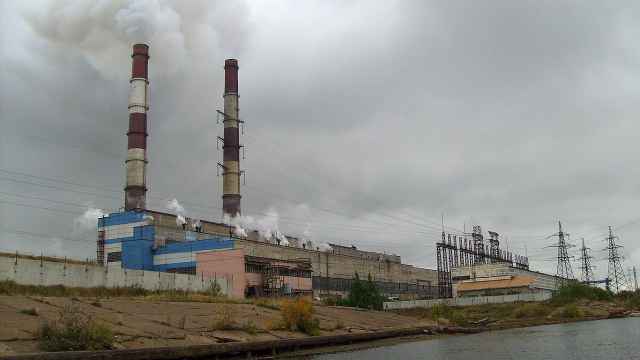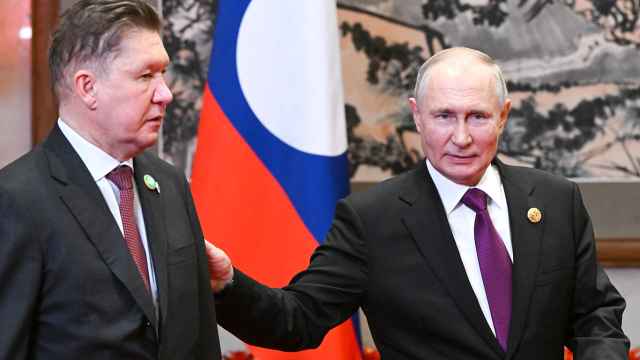Russian state energy giant Gazprom is undergoing a major restructuring as it faces its worst financial crisis in years, the Financial Times reported Wednesday, citing the company’s 2024 transformation presentation.
Once Russia’s most profitable company, Gazprom posted a net loss of around $7 billion in 2023 — its first since 1999 — after Europe slashed its Russian gas purchases by more than 90% amid the full-scale invasion of Ukraine.
While Gazprom has yet to release its international financial statement for 2024, FT reported that the company recently posted its worst result in modern history: a loss of 1.08 trillion rubles ($12.8 billion) under Russian accounting standards.
Looking ahead, Gazprom could lose 15 trillion rubles (almost $179 billion) between 2025 and 2034, according to FT. The company also expects its gas exports to Europe and Turkey to fall to 47 billion cubic meters in 2025 and 34 billion cubic meters in 2034 — a fivefold drop from 2019.
Gazprom’s deputy CEO Yelena Ilyukhina is reportedly spearheading a downsizing plan that includes shuttering at least three departments, merging eight divisions and consolidating the company’s legal, tax and treasury functions.
Ilyukhina is also believed to have pushed for cutting 1,600 managers from Gazprom’s headquarters in St. Petersburg. The company currently employs around 500,000 people.
Her goal is to transform Gazprom into a “single, vertically integrated company,” with its most profitable subsidiary, Gazprom Neft, playing a central role in the restructuring.
Gazprom Neft’s strong financial performance in 2023 — contrasting with its parent company’s losses — reportedly fueled one of the energy sector’s first major internal power struggles since the invasion of Ukraine, FT cited current and former Russian energy executives as saying.
As part of the overhaul, some Gazprom Neft departments were eliminated, while others were placed under Gazprom’s direct control. In 2024, Gazprom Neft also increased its dividend payouts to its parent company.
The moves led to an exodus of senior executives at Gazprom Neft, temporarily easing tensions between its CEO Alexander Dyukov and Gazprom CEO Alexei Miller, whom FT described as having “polar opposite” business philosophies and attitudes toward the Ukraine war.
Gazprom and Gazprom Neft did not respond to FT’s requests for comment.
The restructuring aims to shift Gazprom’s power structure from “strong subsidiaries controlling a weak center” to “a strong center with compliant subsidiaries,” according to Ilyukhina’s reported presentation.
“The entire business structure was built in an environment of constant growth,” an unnamed source close to Gazprom told FT. “But now everything has changed.”
A Message from The Moscow Times:
Dear readers,
We are facing unprecedented challenges. Russia's Prosecutor General's Office has designated The Moscow Times as an "undesirable" organization, criminalizing our work and putting our staff at risk of prosecution. This follows our earlier unjust labeling as a "foreign agent."
These actions are direct attempts to silence independent journalism in Russia. The authorities claim our work "discredits the decisions of the Russian leadership." We see things differently: we strive to provide accurate, unbiased reporting on Russia.
We, the journalists of The Moscow Times, refuse to be silenced. But to continue our work, we need your help.
Your support, no matter how small, makes a world of difference. If you can, please support us monthly starting from just $2. It's quick to set up, and every contribution makes a significant impact.
By supporting The Moscow Times, you're defending open, independent journalism in the face of repression. Thank you for standing with us.
Remind me later.






